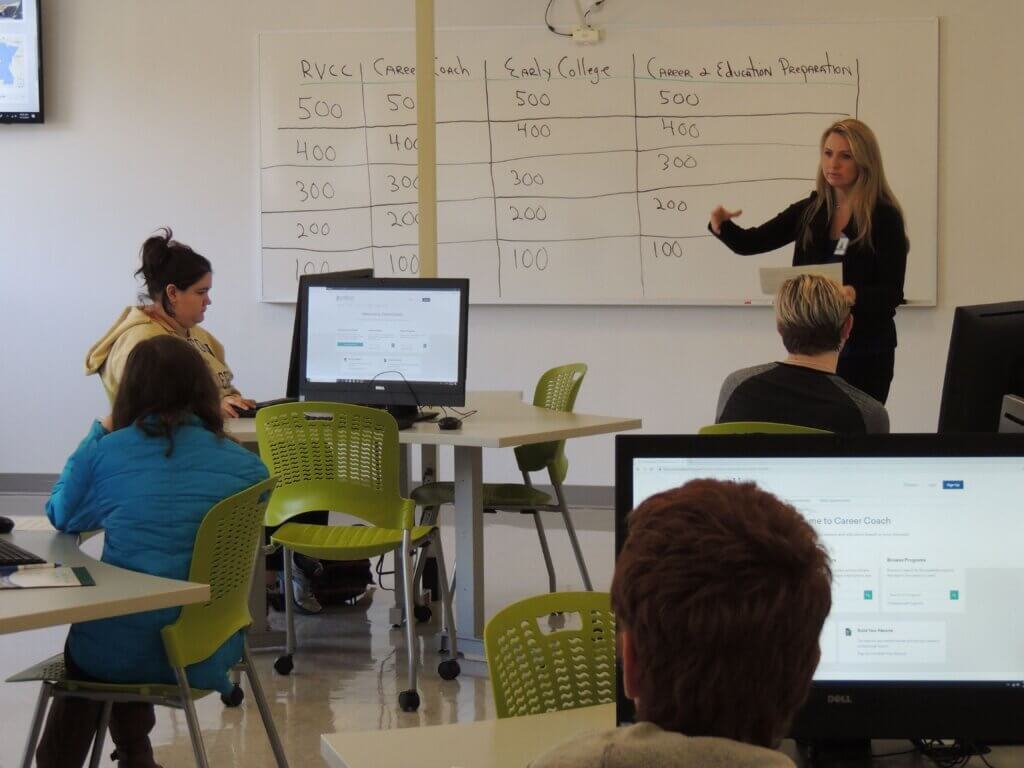Accessibility Services Application
 In compliance with Section 504 of the 1973 Rehabilitation Act and the American Disabilities Act of 1991, RVCC does not discriminate against students with disabilities in terms of program admissions and/or opportunities for academic success.
In compliance with Section 504 of the 1973 Rehabilitation Act and the American Disabilities Act of 1991, RVCC does not discriminate against students with disabilities in terms of program admissions and/or opportunities for academic success.
What We Do
- Develop a plan to reach your academic goals
- Ensure accommodations are in place to meet students’ individual needs.
- Provide information and referral
- Serve as a campus partner and advocate
Getting Started
Meet with the campus Accessibility Coordinator.
Provide documentation of the disability. The documentation must be from a licensed professional (doctor, psychiatrist, etc.). An IEP or 504 Plan with accompanying testing may also considered when developing a plan.
Complete application forms for accommodations provided by the Accessibility Coordinator.
- New Student Accessibility Services Application Form
- Returning Student Accessibility Services Application Form
An Individual Reasonable Accommodation Plan (IRAP) is developed based on documentation and the student application. Once complete, the Coordinator will provide the IRAP to any instructors designated by the student.
You may choose to meet with your instructor to discuss your plan.
The plan is renewed prior to the start of each semester and is not automatically updated without contacting the Accessibility Coordinator.
In the Classroom
- A student has the right not to disclose a disability and may enroll without an accommodation plan.
- If the student and instructor are unsure how to implement the IRAP or are unable to agree on implementing the IRAP as written, the instructor will contact the Accessibility Coordinator and together, in consultation with the Vice President of Academic & Student Affairs, they will make a determination of whether the recommended accommodation(s) will fundamentally alter the nature of the service, program or activity.
- The Resource Guide for Students with Disabilities has additional information and resources for college students and accessibility
FAQs
- Reduced course load
- Extended testing time
- Separate reduced-distraction location for testing
- Recording devices
- Note taker
- Preferential seating
- Audio versions of textbooks
- Access to voice to text and text to voice software
- Sign language interpreter
No. Students are required to meet the essential requirements of academic departments to enter a program and to remain in a program. All students must show mastery of course materials to earn college credit.
- When a request is denied
- The College will explain the reasons for the denial, in writing, to the student;
- The College will consider whether effective alternatives exist that would allow the individual with a disability to participate without lowering essential requirements or fundamentally altering the nature of the program; and
- If the request is denied because the College deems the documentation that the student provided is deficient, the College will explain why it is deficient so that the student can resolve any such deficiencies.
- Staff or faculty shall be notified of approved adjustments/auxiliary aids and services by the Accessibility Coordinator.
- The College, through all of its faculty and staff, is obligated to implement approved academic adjustments/auxiliary aids and service.
- Pending the resolution of any such concerns, faculty and staff will continue to provide such approved adjustments/aids and service.
of our Students Receive Financial Aid

